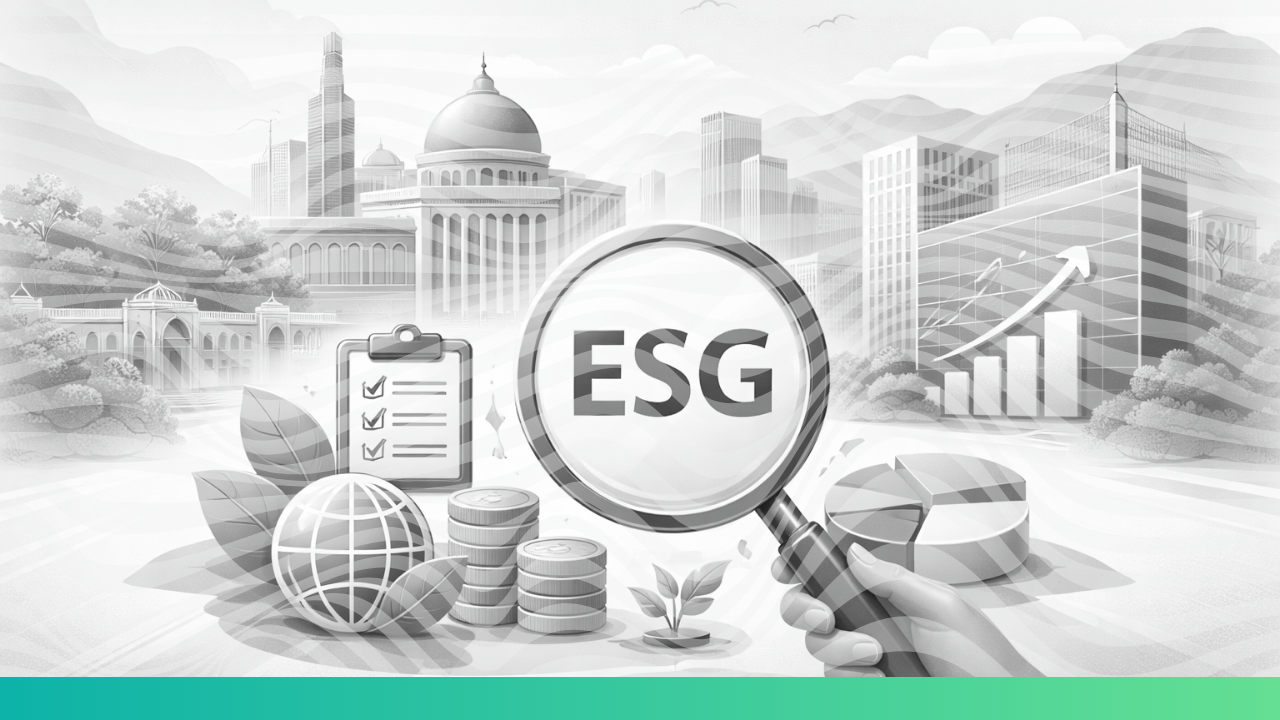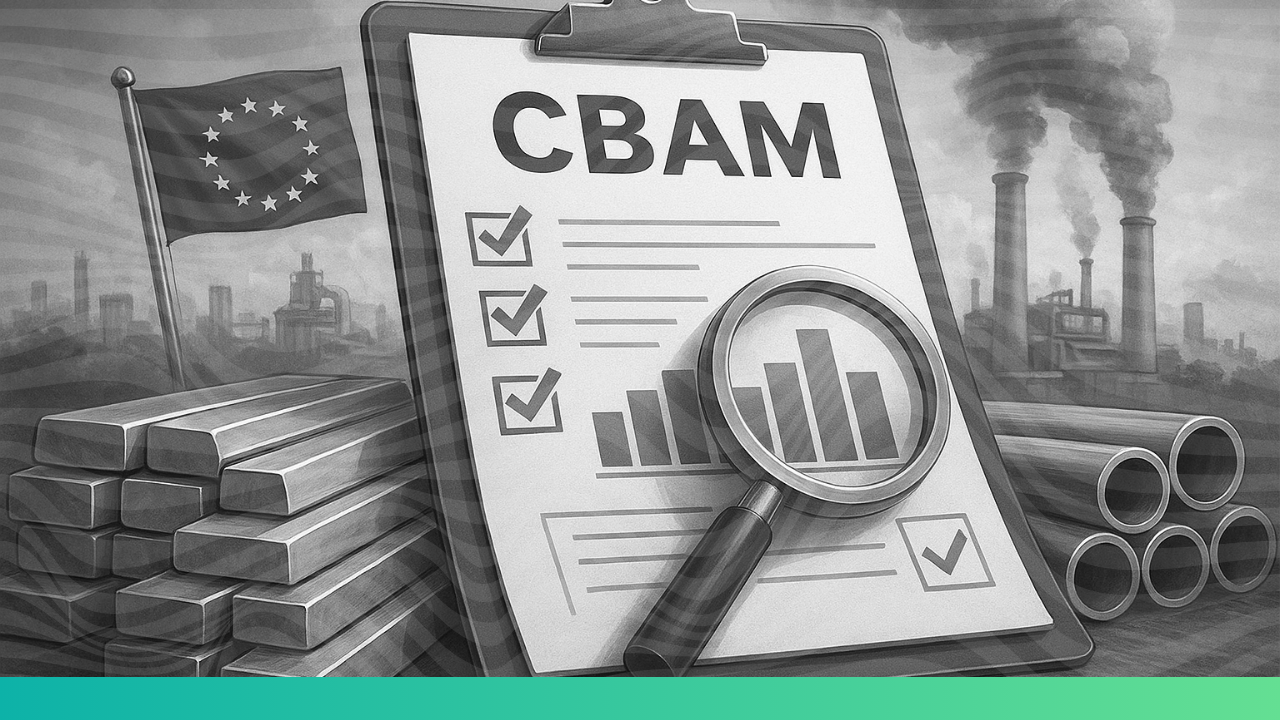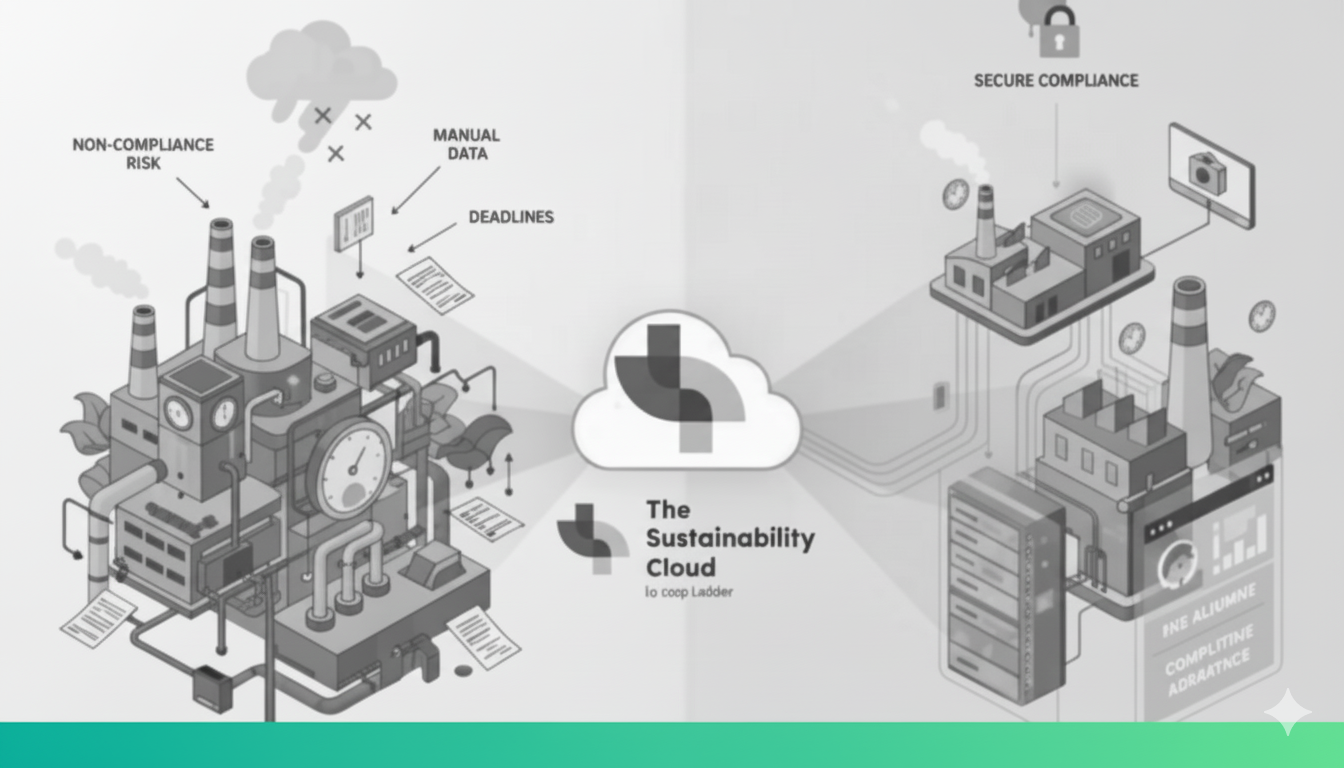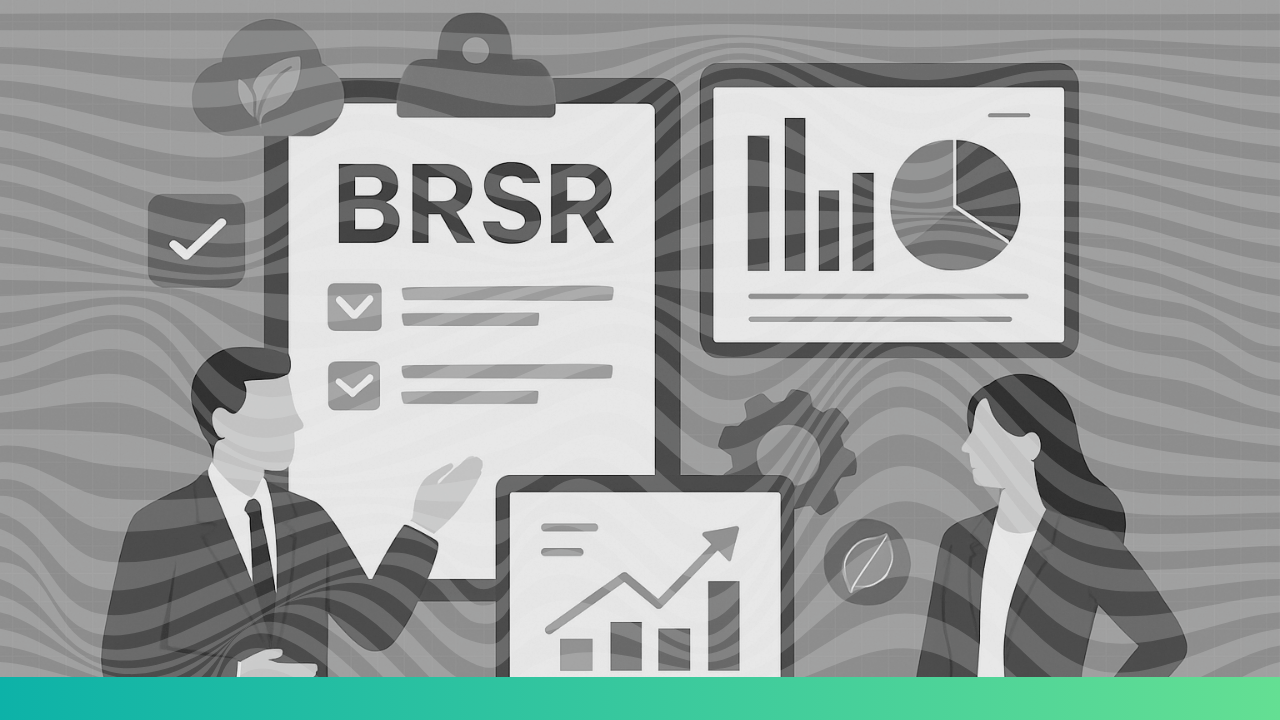Latest Post

ESG Regulations Oman: ESG reporting evolution demands strategic action: From impact to financial risk
ESG Regulations Oman: ESG reporting evolution demands strategic action: From impact to financial riskOman’s approach to ESG is closely aligned

EU CBAM Verifiers: Complete Guide and Checklist for Indian Exporters (2026 Ready)
EU CBAM verifiers are a critical part of the Carbon Border Adjustment Mechanism (CBAM) ‘s definitive phase, which starts on

ESG Regulations Oman: ESG reporting evolution demands strategic action: From impact to financial risk
ESG Regulations Oman: ESG reporting evolution demands strategic action: From impact to financial riskOman’s approach to ESG is closely aligned

EU CBAM Verifiers: Complete Guide and Checklist for Indian Exporters (2026 Ready)
EU CBAM verifiers are a critical part of the Carbon Border Adjustment Mechanism (CBAM) ‘s definitive phase, which starts on
Featured Post

CBAM reporting essentials every non-EU exporter must know
An outline of guidelines and compliances that must be followed by non-EU operators under

7 Best carbon accounting software in 2024
A look at the 7 best carbon accounting platforms in 2024.

How early CBAM reporting for declarants and suppliers can protect and boost profits
CBAM is one of the most complex compliances, and everyone is new to this

CBAM for iron and steel: All you need to know
An outline of how CBAM affects non-EU exporters of iron and steel products.

CGWA guideline – June 2021 for water meter with telemetry for groundwater extraction
June 2021 CGWA guidelines on the extraction of groundwater via the use of a

CBAM for cement sector: Guidelines for non-EU exporters and EU-importers
A detailed roadmap for non-EU exporters of cement products under CBAM to ensure accurate

Telemetry System for Groundwater Monitoring as per Central Ground Water Authority (CGWA) NOC Guidelines
Looking for a Groundwater Monitoring Telemetry System? As per the latest CGWA guidelines, it’s

EU CBAM Verifiers: Complete Guide and Checklist for Indian Exporters (2026 Ready)
EU CBAM verifiers are a critical part of the Carbon Border Adjustment Mechanism (CBAM)

ESG Regulations Oman: ESG reporting evolution demands strategic action: From impact to financial risk
ESG Regulations Oman: ESG reporting evolution demands strategic action: From impact to financial riskOman’s approach to ESG is closely aligned with its long-term national priorities, as the country looks to

EU CBAM Verifiers: Complete Guide and Checklist for Indian Exporters (2026 Ready)
EU CBAM verifiers are a critical part of the Carbon Border Adjustment Mechanism (CBAM) ‘s definitive phase, which starts on January 1, 2026. Recent published regulations also point to one

CPCB’s new Directive for NCR Delhi Industries: OCEMS PTZ Camera Installation
Delhi–NCR industries (food, textile, metal) must now install OCEMS and PTZ cameras with real-time data transmission to CPCB/SPCB servers, as per a new CPCB directive. Mandatory monitoring includes PM for all units, and PM + SO₂ + NOₓ for metal units, with full compliance required by 31 December 2025. The Sustainability Cloud offers end-to-end OCEMS + PTZ installation, integration, calibration, and upkeep to help industries become CPCB-compliant on time.

CBAM update: EU leaves Indirect Emissions out of scope for metals and scrap is now a separate product: Know more!
The European Union has released a critical CBAM update that reshapes how metal exporters will navigate the world’s most ambitious carbon-border mechanism. According to the latest announcements, the EU will

September 23, 2025 | CPCB Issues OCEMS Directive on Real-Time Emission Data
On 23 Sept 2025, CPCB directed industries to register on the new OCEMS portal for emission and data reporting. Learn what this means for businesses.

How to Become CBAM Audit-Ready Before 2026: Compliance with CBAM Solution
With CBAM’s transitional phase underway, EU-exporting installation operators must act now to ensure audit readiness. Full implementation begins in 2026—put robust CBAM tools in place to mitigate compliance risks early.

The Sustainability Cloud featured on Bharat Climate Startups
The Sustainability Cloud shared its journey on Bharat Climate Startups with host Shweta Dalmmia, highlighting its journey of building a platform that helps enterprises measure, report, and reduce their environmental footprint while charting a clear path to Net Zero.

CBAM Tax 2026: Act now to avoid massive penalties
The CBAM definitive regime begins January 1, 2026, making compliance mandatory. Non-compliance can trigger heavy CBAM tax penalties, blocked trade, and loss of market access. Discover how businesses can prepare with advanced CBAM tracking software.

CSO’s guide to top 5 best BRSR software platforms in 2025: Features and Comparison
The Business Responsibility and Sustainability Report (BRSR), mandated by SEBI demands ESG disclosures aligned with global standards. This blog lists down the top 5 BRSR reporting tools, an organization can trust upon for their BRSR reporting.
News and media

CPCB’s new Directive for NCR Delhi Industries: OCEMS PTZ Camera Installation

September 23, 2025 | CPCB Issues OCEMS Directive on Real-Time Emission Data

